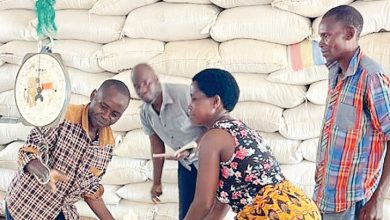Why elections alone won’t fix Malawi
The race for the Presidency is heading up as Malawi readies for the September 16, 2025 tripartite elections. This is a chance to change the leadership, preferably one that can restore macro-economic stability and the rule of law.
Let’s be honest— Malawi’s democracy isn’t working the way it should. Yes, we vote. Yes, we have leaders who campaign and make promises. But when all is said and done, what has really changed since we chased out the last regime in 2020 for the same problems?
People voted in the Tonse Alliance hoping for something new. They were tired of corruption; tired of political appointments; tired of being ruled by a connected few while the rest of the country struggled to find jobs, food, and decent services. But fast forward five years, the problem remains.
It is clear that a change in leadership does not necessarily result in a change in the system. Elections might just usher in a new cohort of politicians, most of whom are recycled widows of power, to abuse the system.
We are stuck in a system that gives too much power to a small group of people, and very little power to the rest of us. Presidents come and go, but the structure remains the same — top-heavy, weak on oversight, and wide open to abuse.
Just look at the way appointments are made. People who don’t meet basic qualifications are put in charge of key government institutions just because they’re friends with the right people. Public jobs have become rewards for loyalty, not competence. If you’re well-connected, you’re in. If not, tough luck.
It’s a pattern we’ve seen over and over again. And it keeps happening because the system allows it. Malawi borrowed parts of the American and British political models — a strong president like in the US, and a system where MPs can also serve as Cabinet ministers, like in the UK. But we forgot something important: both those countries have real checks and balances. We don’t.
In Britain, you have the House of Lords to keep the Cabinet in check. In the US, the Senate can block decisions by the president. In Malawi? If the ruling party controls Parliament — which it usually does — then there’s nobody to stop them from doing whatever they want.
It gets worse. The Attorney General and the Minister of Justice are often picked from the same party as the president. Sometimes, they’re more loyal to their party than to the law. So even the justice system, which should be independent, ends up compromised.
We saw what happened when the Ombudsman tried to challenge some shady government appointments and the Attorney General pushed back. It was a public fight between two offices that are supposed to work for us — the people. And it showed just how broken our oversight systems really are.
If we’re serious about fixing this, then we need to stop treating elections as the only solution. Yes, voting matters. But real change comes when we build systems that don’t depend on who is in power. Systems that don’t collapse the moment the wrong people get elected.
We need to ask ourselves hard questions: Should we continue allowing MPs to double as Cabinet ministers? Doesn’t that just weaken Parliament’s ability to hold the Executive accountable? Should we introduce a Senate — an independent body that can provide oversight — even if it’s complicated?
These aren’t easy changes, but they are necessary. We can’t keep pretending that regime change will miraculously solve these problems. We’ve tried that before, and it hasn’t worked. What we need is a new political contract — a people’s manifesto — that puts checks and balances at the centre of how this country is run.
Otherwise, the same problems — corruption, nepotism, abuse of office — will keep coming back, no matter who is in charge.





